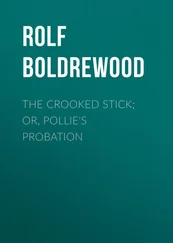Rolf Boldrewood - War to the Knife
Здесь есть возможность читать онлайн «Rolf Boldrewood - War to the Knife» — ознакомительный отрывок электронной книги совершенно бесплатно, а после прочтения отрывка купить полную версию. В некоторых случаях можно слушать аудио, скачать через торрент в формате fb2 и присутствует краткое содержание. Жанр: foreign_antique, foreign_prose, на английском языке. Описание произведения, (предисловие) а так же отзывы посетителей доступны на портале библиотеки ЛибКат.
- Название:War to the Knife
- Автор:
- Жанр:
- Год:неизвестен
- ISBN:нет данных
- Рейтинг книги:4 / 5. Голосов: 1
-
Избранное:Добавить в избранное
- Отзывы:
-
Ваша оценка:
- 80
- 1
- 2
- 3
- 4
- 5
War to the Knife: краткое содержание, описание и аннотация
Предлагаем к чтению аннотацию, описание, краткое содержание или предисловие (зависит от того, что написал сам автор книги «War to the Knife»). Если вы не нашли необходимую информацию о книге — напишите в комментариях, мы постараемся отыскать её.
War to the Knife — читать онлайн ознакомительный отрывок
Ниже представлен текст книги, разбитый по страницам. Система сохранения места последней прочитанной страницы, позволяет с удобством читать онлайн бесплатно книгу «War to the Knife», без необходимости каждый раз заново искать на чём Вы остановились. Поставьте закладку, и сможете в любой момент перейти на страницу, на которой закончили чтение.
Интервал:
Закладка:
"If all Englishmen felt alike in that respect, we shouldn't have had an empire, should we?" suggested the other. "Somebody must take the chances of war and adventure."
" Somebody else it would have been in my case," promptly replied Mr. Slyde. "However, matter of taste. Every man manage his own affairs. Great maxim. And as mine are mixed up in this blessed company, if you'll look me up in Auckland, I'll put you up to a wrinkle or two in the matter of land-purchase – of course you'll want to buy land; otherwise you might get sold – you see? Stock Exchange with a 'boom' on nothing to it."
The transfer of Mr. Massinger's trunks in a four-wheeler to a comfortable-appearing hostelry was effected with no more than average delay. An appetizing breakfast, wherein a well-cooked mutton chop was preceded by a grilled flounder, and flanked by eggs and toast, convinced him that the Briton of the South had no occasion to fear degeneration as a consequence of unsuitable living. After which he felt his spirits distinctly improved in tone, and his desire to explore the surroundings of this distant outpost of the wandering Briton took shape and motion.
The town of Auckland, having a few reasonably good buildings and a large number of cottages, cabins, and other shelters in every gradation, from the incipient terrace to the Maori "whare," was about the average size of English country towns. No great difference in the number of houses. Not much in that of the inhabitants. But there was an unmistakable departure in the air and bearing of these last. The recognized orders and classes of British life, hardly distinguishable from their British types, were all there. Rich and poor, gentle and simple. The farmer, the country gentleman, the tradesman, the lounger, the doctor, the banker, the merchant, the peasant, and the navvy, all were there, with their pursuits and avocations written in large text on form and face, speech and bearing. But he marked, as before stated, a certain departure from the home manner. And it was grave and essential. Whether high or low, each man's features in that heterogeneous crowd were informed, even illumined, with the glow of hope, the light of sanguine expectation.
Once landed on the shores of this magnificent appanage of Britain, so nearly lost to the empire, dull must he be of soul, narrow of vision, who did not feel his heart bound within him and each pulse throb at the thought of the gorgeous possibilities which lay before him. Before the labourer, who received a fourfold wage, and rejoiced in such plenteous provision for his family as he had never dreamed of in the mother-land. Before the farmer, who saw his way to opulence and landed estate, as he surveyed the transplanted food crops growing and burgeoning as in a glorified garden which "drank the rains of heaven at will." Before the professional man, whose high fees and abundant practice would soon absolve him from the necessity of professional toil. Before the capitalist, who saw in the steady rise of land-values, whether in town or country, an illimitable field for judicious investment, ending with an early retirement and at least one fortune.
The town sloped upwards from the sea, thus necessitating steep gradients for the streets. The main street, broad and well laid out, was more level at its inception, though Massinger saw by the hill immediately above it that he would not have to go far before his Alpine experiences would stand him in good stead. This was entirely to his mind; so, stepping out with determination, he reached the summit of Mount Eden. Here he paused, and indeed the pace at which he had breasted the ascent, after the inaction of the voyage, rendered it far from inexpedient to admire the view. What a prospect it was! He stood upon an isthmus with an ocean on either hand. Far as eye could range, the boundless South Pacific lay glowing and shimmering under the midday sun; on the hither side, the harbour with flags of all nations and ships from every sea.
The roadstead by which the Arrawatta had entered, appeared like a land-locked inlet. The outlines of the Greater and Lesser Barrier were plainly visible, as also the lofty ridge of Cape Colville; other islands and headlands loomed faintly in the shadowy horizon. Westward lay the great harbour of Manukau and the Waitakerei Ranges.
Weary with scanning the gulfs of the Hauraki and Waitemata, as also the far-seen ranges of the Upper Thames, holding stores of precious minerals, he allowed his eye to rest upon the fields and farmhouses, villages and meadows, overspreading the levels and sheltered beneath the volcanic hills. Under his feet what marvellous revelations of fertility met his gaze! The volcanic formation was evidenced by the shape of the conical eminences by which he was surrounded. He counted more than a dozen. In all, the extinct craters were perfect in form, though covered on side and base with richest herbage. In these he detected most of the British fodder plants, growing in unusual luxuriance. Observing the flattened summits and remains of graded terraces, he found on inspection that the hand of man had adapted these works of nature to his needs.
Scarped, terraced, and perfect of circumvallation, the remains of mouldering palisades indicated the abodes of a warlike people, who had in long-past days converted these hilltops into fortresses, affording effective means of defence, as well as a wide outlook, in case of invasion.
Here for generations, perhaps centuries uncounted, had this vigorous, agricultural, warlike people – for such by his course of reading he knew the Maori nation to be – lived and died, fought and feasted, garnered their simple harvest, and lived contentedly on the products of land and sea.
Proud and stubborn, brave to recklessness, they naturally became jealous of the gradually extending occupation of their land by the encroaching white race. But why should such a people not be sensitive, even to the madness of battle, against overwhelming odds? They had won their country from the deep, traversing wide wastes of waters in canoes but ill adapted for storm and tempest. They had discovered this fair region – cultivated, peopled it. Why should they not resist a foreign occupation to the death? And as he looked around on the magnificent prospect spread before, around, he could not help recalling the lines of the immortal bard —
"Where's the coward that would not dare
To fight for such a land?"
Returning to his hotel, he chanced to meet several groups of this much-exploited people, and was much impressed by the stalwart frames and bold, independent bearing of the men.
Many of the women, too, were handsome, and among the half-caste girls and young men were forms and faces which would have compared favourably with the finest models of ancient Greece. One young man of that colour attracted his attention. He had been reading on board ship that wonderful romance of Michael Scott's, wherein the spacious times of old, and the planter-life of the West Indian Islands, are limned with such prodigality of colour, such wealth of humorous perception, such power of pathos. As this young man came swinging along with a companion down the street, cigar in mouth, he could not help saying to himself, "There's the young pirate captain out of 'Tom Cringle's Log.'" He was taller even than that fascinating Spanish desperado, but there was a strong family likeness.
"What a man he is!" thought Massinger. "Six feet three or four, if an inch, broad-shouldered, deep-chested – a wondrous combination of strength and activity; supple as a panther, with the muscle of a Farnese Hercules. As to his features, the eyes and teeth are splendid, the complexion a clear bronze, hardly darker than that of Southern Europe."
Altogether he doubted if he had ever seen such a remarkable masculine specimen of personal grace and beauty. "This is truly a remarkable country," he soliloquized. "If the climate and soil can raise men like this, what may not be hoped from the introduction of a purely British race, with all the modern advantages of civilization?"
Читать дальшеИнтервал:
Закладка:
Похожие книги на «War to the Knife»
Представляем Вашему вниманию похожие книги на «War to the Knife» списком для выбора. Мы отобрали схожую по названию и смыслу литературу в надежде предоставить читателям больше вариантов отыскать новые, интересные, ещё непрочитанные произведения.
Обсуждение, отзывы о книге «War to the Knife» и просто собственные мнения читателей. Оставьте ваши комментарии, напишите, что Вы думаете о произведении, его смысле или главных героях. Укажите что конкретно понравилось, а что нет, и почему Вы так считаете.












